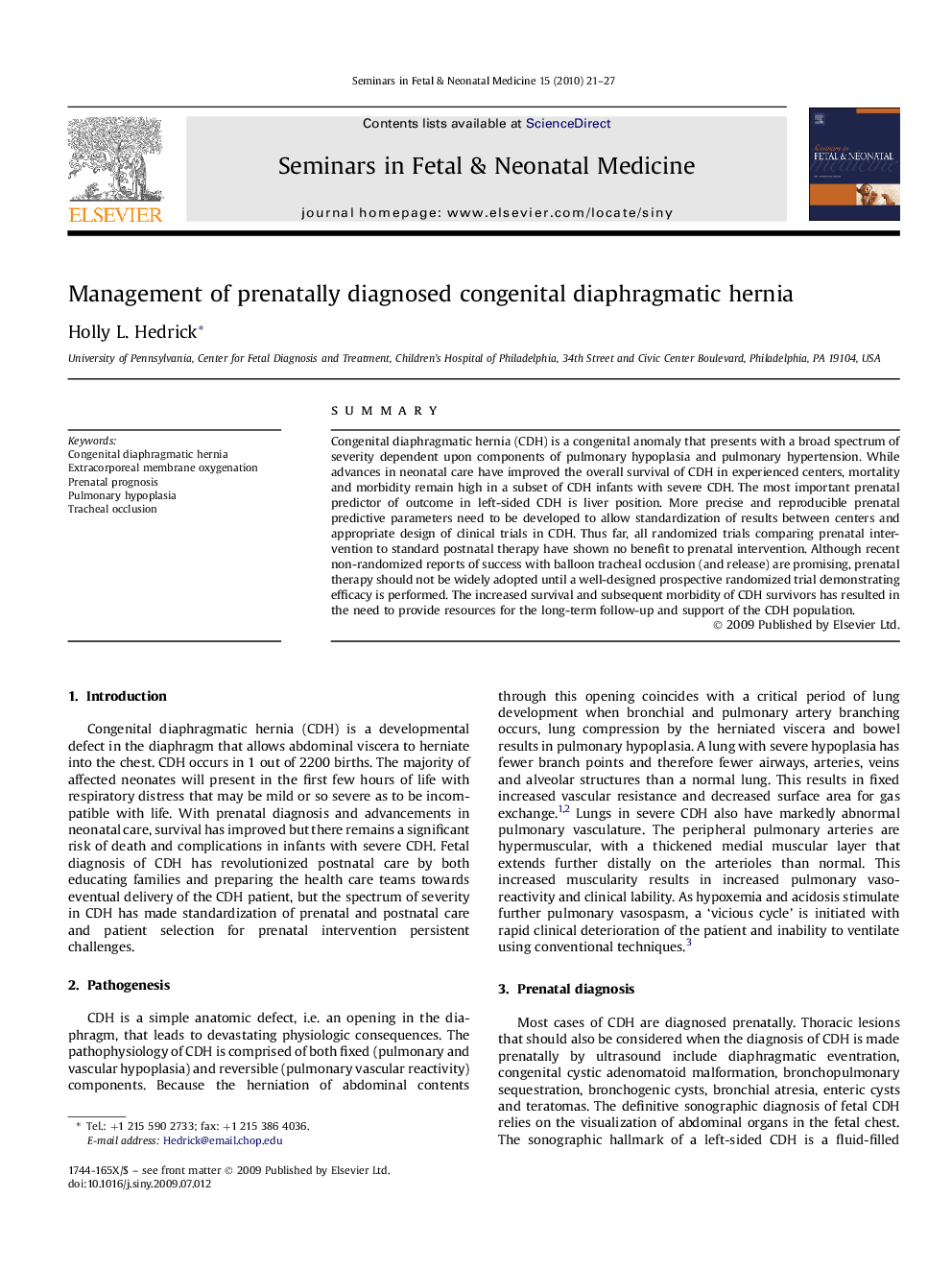| Article ID | Journal | Published Year | Pages | File Type |
|---|---|---|---|---|
| 3974222 | Seminars in Fetal and Neonatal Medicine | 2010 | 7 Pages |
SummaryCongenital diaphragmatic hernia (CDH) is a congenital anomaly that presents with a broad spectrum of severity dependent upon components of pulmonary hypoplasia and pulmonary hypertension. While advances in neonatal care have improved the overall survival of CDH in experienced centers, mortality and morbidity remain high in a subset of CDH infants with severe CDH. The most important prenatal predictor of outcome in left-sided CDH is liver position. More precise and reproducible prenatal predictive parameters need to be developed to allow standardization of results between centers and appropriate design of clinical trials in CDH. Thus far, all randomized trials comparing prenatal intervention to standard postnatal therapy have shown no benefit to prenatal intervention. Although recent non-randomized reports of success with balloon tracheal occlusion (and release) are promising, prenatal therapy should not be widely adopted until a well-designed prospective randomized trial demonstrating efficacy is performed. The increased survival and subsequent morbidity of CDH survivors has resulted in the need to provide resources for the long-term follow-up and support of the CDH population.
